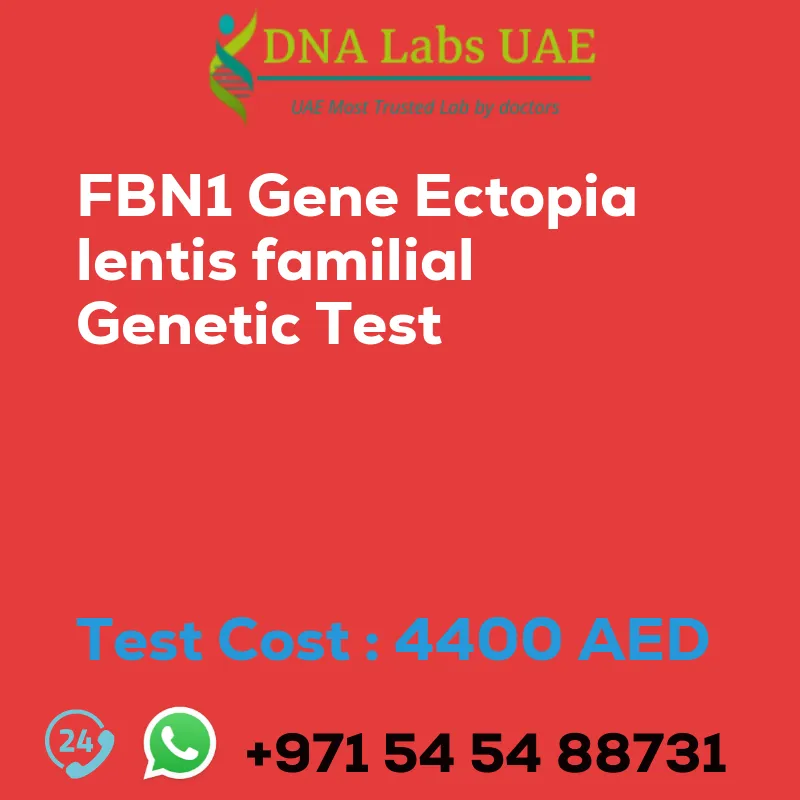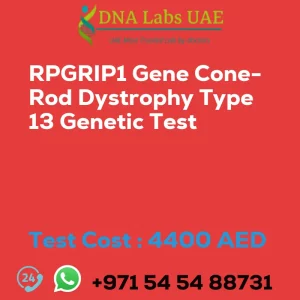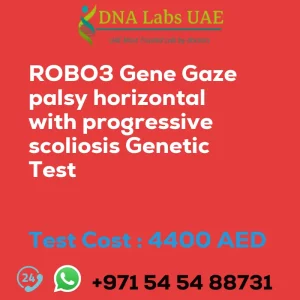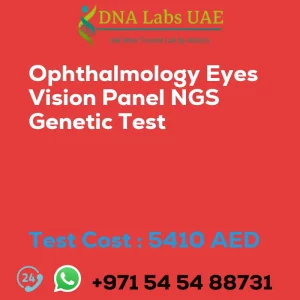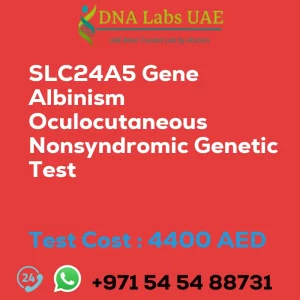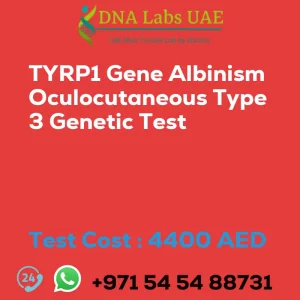FBN1 Gene Ectopia lentis familial Genetic Test
Components: FBN1 Gene Ectopia lentis familial Genetic Test
Price: 4400.0 AED
Sample Condition: Blood or Extracted DNA or One drop Blood on FTA Card
Report Delivery: 3 to 4 Weeks
Method: NGS Technology
Test type: Ophthalmology Disorders
Doctor: Ophthalmologist
Test Department: Genetics
Pre Test Information: Clinical History of Patient who is going for FBN1 Gene Ectopia lentis, familial NGS Genetic DNA Test. A Genetic Counselling session to draw a pedigree chart of family members affected with FBN1 Gene Ectopia lentis, familial NGS Genetic DNA Test gene FBN1
Test Details
The FBN1 gene NGS genetic test is used to detect mutations in the FBN1 gene that can cause familial ectopia lentis. Ectopia lentis is a genetic disorder that affects the lens of the eye, causing it to shift from its normal position. This condition can lead to vision problems and other complications.
Familial ectopia lentis is inherited in an autosomal dominant pattern, which means that a person only needs to inherit one copy of the mutated FBN1 gene from one parent to develop the condition. The FBN1 gene provides instructions for making a protein called fibrillin-1, which is important for the structure and function of connective tissues in the body, including the lens of the eye. Mutations in the FBN1 gene can disrupt the normal production of fibrillin-1, leading to abnormalities in the lens and other connective tissues.
The FBN1 gene NGS genetic test can identify mutations in the FBN1 gene that are associated with familial ectopia lentis, allowing for early diagnosis and treatment of the condition. This test is typically ordered by a healthcare provider and involves taking a sample of the patient’s DNA, usually through a blood or saliva sample. The DNA is then analyzed using next-generation sequencing technology to identify any mutations in the FBN1 gene.
Results from the FBN1 gene NGS genetic test can help healthcare providers develop a personalized treatment plan for patients with familial ectopia lentis, which may include monitoring for vision problems, corrective lenses, or surgery to reposition the lens. It can also inform genetic counseling and screening for family members who may be at risk of inheriting the condition.
| Test Name | FBN1 Gene Ectopia lentis familial Genetic Test |
|---|---|
| Components | |
| Price | 4400.0 AED |
| Sample Condition | Blood or Extracted DNA or One drop Blood on FTA Card |
| Report Delivery | 3 to 4 Weeks |
| Method | NGS Technology |
| Test type | Ophthalmology Disorders |
| Doctor | Ophthalmologist |
| Test Department: | Genetics |
| Pre Test Information | Clinical History of Patient who is going for FBN1 Gene Ectopia lentis, familial NGS Genetic DNA Test. A Genetic Counselling session to draw a pedigree chart of family members affected with FBN1 Gene Ectopia lentis, familial NGS Genetic DNA Test gene FBN1 |
| Test Details |
The FBN1 gene NGS genetic test is used to detect mutations in the FBN1 gene that can cause familial ectopia lentis. Ectopia lentis is a genetic disorder that affects the lens of the eye, causing it to shift from its normal position. This condition can lead to vision problems and other complications. Familial ectopia lentis is inherited in an autosomal dominant pattern, which means that a person only needs to inherit one copy of the mutated FBN1 gene from one parent to develop the condition. The FBN1 gene provides instructions for making a protein called fibrillin-1, which is important for the structure and function of connective tissues in the body, including the lens of the eye. Mutations in the FBN1 gene can disrupt the normal production of fibrillin-1, leading to abnormalities in the lens and other connective tissues. The FBN1 gene NGS genetic test can identify mutations in the FBN1 gene that are associated with familial ectopia lentis, allowing for early diagnosis and treatment of the condition. This test is typically ordered by a healthcare provider and involves taking a sample of the patient’s DNA, usually through a blood or saliva sample. The DNA is then analyzed using next-generation sequencing technology to identify any mutations in the FBN1 gene. Results from the FBN1 gene NGS genetic test can help healthcare providers develop a personalized treatment plan for patients with familial ectopia lentis, which may include monitoring for vision problems, corrective lenses, or surgery to reposition the lens. It can also inform genetic counseling and screening for family members who may be at risk of inheriting the condition. |

